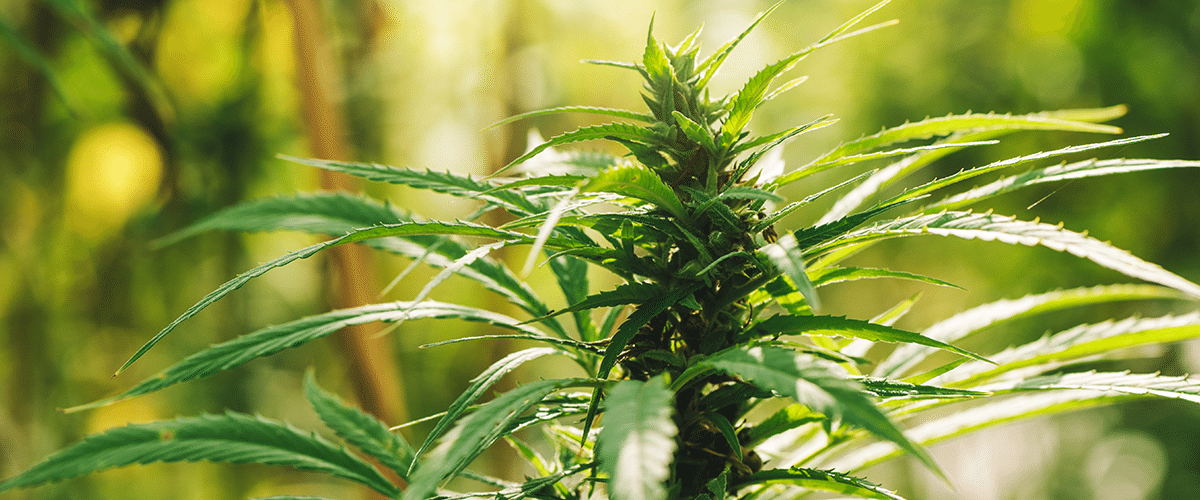[vc_row][/vc_row][vc_row][vc_column][vc_column_text]
The bill would remove federal restrictions on the growing of industrial hemp and allow for commercial cultivation.
A bipartisan group of federal lawmakers have introduced the Industrial Hemp Farming Act of 2017 (H.R. 3530), a bill that would reclassify industrial hemp from a controlled substance and open the door for commercial production. Congressmen James Comer (R-KY), Bob Goodlatte (R-VA), Jared Polis (D-CO), and Thomas Massie (R-KY) introduced the federal legislation, which proposes treating hemp like corn, wheat, and other traditional farm crops.
Hemp – a variety of the Cannabis sativa L. plant species — can be used to produce thousands of products, including paper, textiles, fabrics, body care products, and cannabidiol (CBD) oil nutritional supplements. The U.S. retail market for hemp is valued at $688 million and the nation’s hemp-based CBD market “has exploded in recent years,” but federal law as of now requires that hemp for commercial purposes be imported.
“Hemp has boundless potential as a sustainable alternative to plastics and other environmentally harmful products,” said Rep. Polis. “It can be used in everything from construction materials to paper to lotions and even ice cream. It’s past time that we eliminate absurd barriers and allow hemp farmers to get to work, create jobs, and grow this promising and historically important crop!”
Since 2014, Section 7606 of the Farm Bill has given states allowance to pass laws permitting universities and state departments of agriculture to grow hemp for research and pilot programs. This new proposed legislation would remove all restrictions, lifting federal prohibitions that inhibit commercial cultivation of hemp containing a tetrahydrocannabinol (THC) content of no more than 0.3 percent by dry weight.
“I am honored to sponsor the Industrial Hemp Farming Act because I know firsthand the economic viability of industrial hemp. Hemp has created new opportunities for family farmers and good paying jobs for American workers, especially in Kentucky,” said Rep. Comer.[/vc_column_text][/vc_column][/vc_row][vc_row][vc_column][vc_single_image image=”17298″ img_size=”1200×250″ onclick=”custom_link” img_link_target=”_blank” link=”https://www.medicalmarijuanainc.com/why-do-we-refer-to-hemp-as-industrial-hemp/”][/vc_column][/vc_row][vc_row][vc_column][vc_column_text]Besides allowing for commercial cultivation, Congressional bill H.R. 3530 would also permit research cultivation of hemp containing a THC content of up to 0.6 percent by dry weight, and expand federally legal commercial hemp cultivation to tribal lands, reservations, and U.S. territories.
“By removing industrial hemp from the definition of a controlled substance, the Industrial Hemp Farming Act will finally allow for responsible, commercial production of industrial hemp without fear of violating federal law. This bipartisan legislation is the product of many months of robust discussion with both lawmakers and stakeholders. I am pleased to see it introduced today, and I look forward to moving this legislation through the House,” said Congressman Bob Goodlatte.
Vote Hemp, the nation’s leading grassroots hemp advocacy organization, supports the bill. However, the organization has voiced concerns over some provisions in the bill, including one that allows the Drug Enforcement Administration (DEA) to conduct “administrative inspections” of locations where there is “production, storage, distribution, or use” of hemp.
Learn about the differences between hemp and marijuana and hemp’s current legal status in the U.S. by visiting our education page. Keep up with the growing legal cannabis industry through our news feed.[/vc_column_text][/vc_column][/vc_row]






